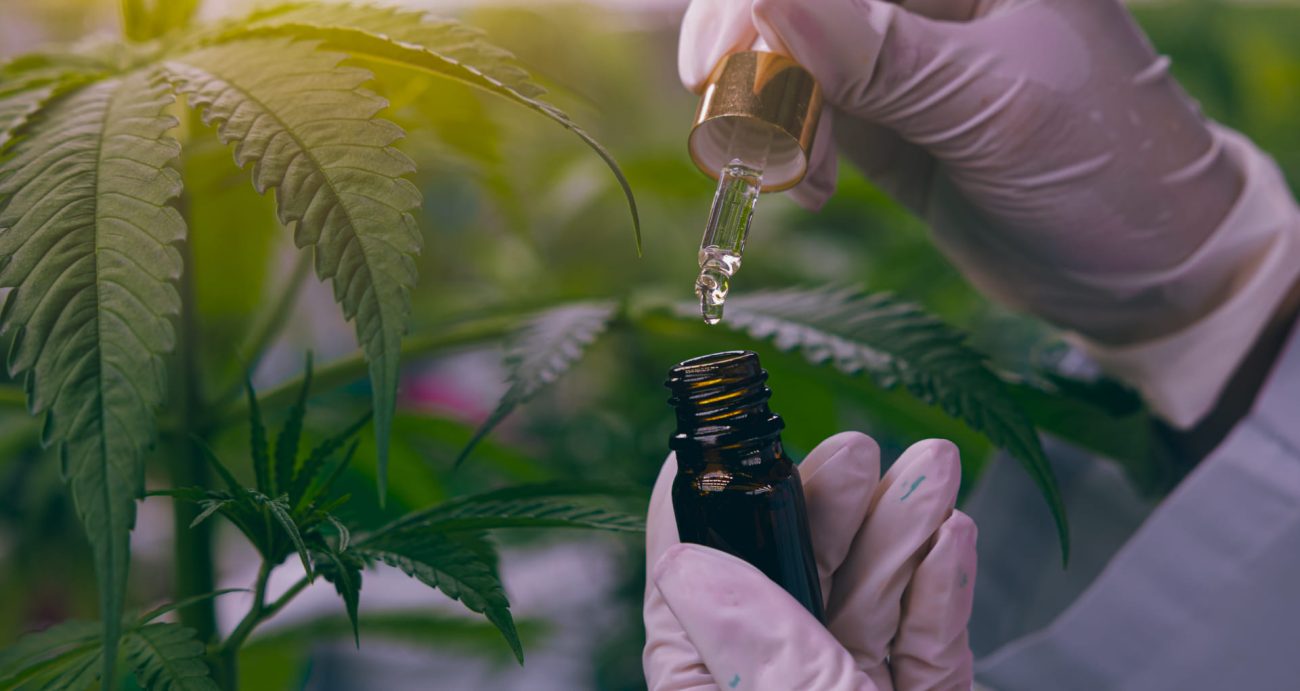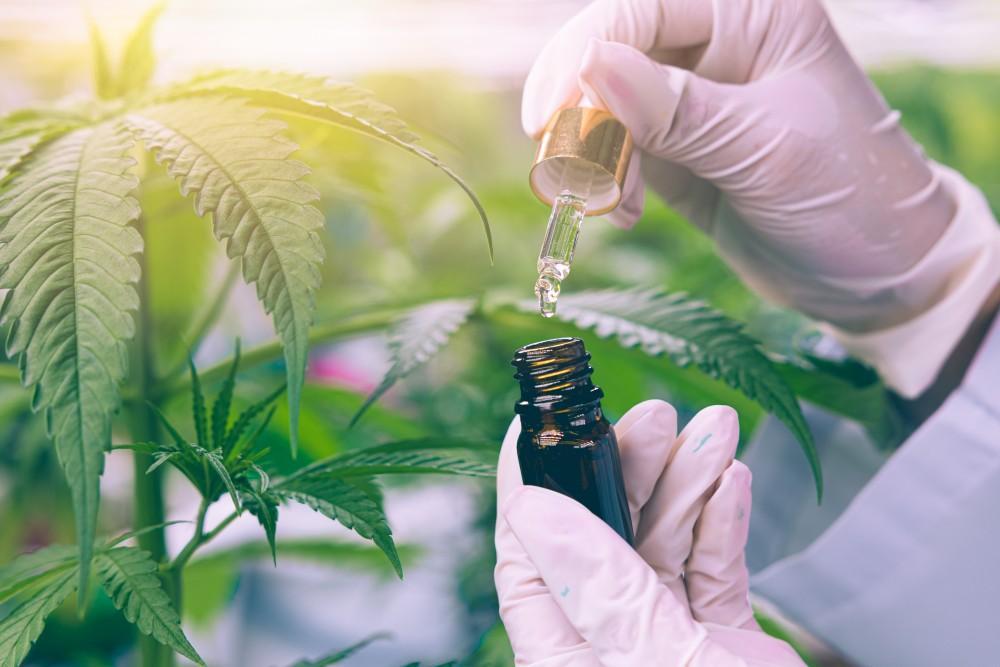Multiple Sclerosis is a chronic autoimmune disease that affects the central nervous system (brain and spinal cord) as well as the optic nerve. It occurs when the immune system attacks the sheath protecting nerve cells (also known as myelin); as a result of cell damage, the nervous system misfires giving way to communication issues between the brain and the rest of the body and causes symptoms such as vision changes, pain, spasticity and fatigue.
In the US, recent studies estimate MS prevalence at nearly 1 million people, more than twice the original estimate. Is MS curable? No, but while there is no cure, medical cannabis has been shown to provide relief for some of its symptoms. What are MS symptoms? What are the types of MS? What are MS treatments? Is MS hereditary? What are the benefits of medical marijuanas for MS patients and do they have legal access to it in Texas? We’ll tell you this and more below.
What is MS?
Multiple Sclerosis (MS) is a debilitating disease that affects the central nervous system. As the immune system attacks healthy cells, eventually it causes irreparable neuronal damage resulting in communication difficulties between the brain and other parts of the body. Due to the damage, nerves can no longer function adequately impacting the way you feel and move which is reflected in muscle control, balance, vision, mood and other body functions.
The impact varies from one patient to the other; some experience mild symptoms and don’t require treatment while others suffer from MS flare-ups with debilitating symptoms that hinder their ability to conduct daily activities. The onset of the disease usually occurs in patients with ages between 20 and 40 years old. In some cases it presents as temporary flare-ups, in other cases the symptoms don’t go away after initial onset and only get worse over time.
There are 3 main types of MS:
1- Relapsing-Remitting MS (RRMS): the most common form as it affects roughly 85% of the patient population. It is characterized by the occurrence of temporary MS flare-ups with periods of going into remission until the next relapse. Sometimes the symptoms get worse at each relapse, in those cases the condition is known as RRMS with worsening.
2- Primary-Progressive MS (PPMS): in this variant that impacts 10% of all MS patients, the symptoms tend to worsen over time. There are no MS flare-ups, only gradual worsening as time goes by.
3- Secondary-Progressive MS (SPMS): in this presentation, symptoms vary from patient to patient but tend to start with vision changes at disease onset and then new symptoms appear as the disease progresses and the condition worsens.
Is MS hereditary? While the odds of developing the condition are higher in individuals who have MS patients in their family, MS is not directly inherited. Other suspected causes are lack of vitamin D and sunlight, teenage obesity, smoking, viral infections (in particular viruses like Epstein-Barr which cause fever that triggers the immune system) and the patient’s gender (women are 2 to 3 times more susceptible to develop MS than men).
What are MS symptoms? MS symptoms can vary widely, but often include pain, spasticity, fatigue, trouble walking, blurred or double vision, poor bladder or bowel control, depression, sexual problems, difficulty with coordination and balance as well as difficulty focusing or remembering, tingling or numbness and tremors (to name a few).
While there is no cure for MS, there are treatments available to help manage symptoms and improve quality of life despite the relapses.
MS Treatments with cannabis
Just as the symptoms are varied, so are MS treatments. They include steroids, muscle relaxers, pain medicine, antidepressants, laxatives or suppositories for gastrointestinal issues, cognitive behavioral therapy or medicine for managing fatigue, physiotherapy, occupational therapy, speech therapy and disease-modifying therapies (only viable for those patients suffering from a form of MS that manifests through relapses).
In some cases, traditional medicine such as steroids have undesirable side-effects which also restrict their use, leaving patients with debilitating symptoms and few options to seek relief. Although more research is necessary, medical cannabis is becoming an increasingly popular treatment option for MS patients looking to manage their symptoms and improve their quality of life.
The Benefits of Medical Cannabis for MS Patients
Medical cannabis has been shown to provide relief for many of the symptoms associated with MS. This is because some cannabinoids present in cannabis have the ability to interact with the body’s endocannabinoid system (a complex network of receptors and neurotransmitters that play a role in regulating many physiological processes, including pain, inflammation, and immune function). By helping modulate the activity of the ECS, medical cannabis can help restore balance to the body, alleviate MS symptoms and slow its progression.
Two cannabinoids in the marijuana plant play that essential role: THC (the psychoactive compound in cannabis) binds to CB1 receptors in the brain and nervous system, while CBD (a non-psychoactive compound) interacts with CB2 receptors in the immune system and peripheral tissues and counters THC’s psychoactive effects.
Cannabis has been shown to have anti-inflammatory and immunosuppressive properties, which can help reduce inflammation in the central nervous system, alleviate pain and potentially slow the progression of the disease. Studies have also found that in addition to helping reduce spasticity, depression, discomfort and exhaustion resulting in increased mobility, cannabis also helps improve sleep quality in MS patients.
Cannabis for MS patients
It’s important to note that not all marijuanas are created equal. The benefits a patient can derive from medical cannabis are superior to those derived from purely smoking weed or from buying CBD oil at a store. Medical cannabis is produced under strict regulations that guarantee its safety, quality and purity. Also, by choosing medical cannabis versus over-the-counter options, patients integrate not only an effective medicine to their course of treatment but also the valuable advice of a qualified healthcare provider.
Marijuana doctors at Texas Cannabis Clinic will be able to customize a compound with the adequate cannabis strain and exact THC:CBD ratios specifically for you. They will also ensure that all considerations regarding drug interactions with other medicines are observed, as well as provide periodic follow-up and adjusting the dose and ratios if needed, favoring your comfort levels and the success of the treatment as a whole.
More and more patients are turning to medical cannabis as a viable treatment option for MS when looking to manage their symptoms and improve their quality of life, not only because it’s effective but also because it’s not accompanied by the same undesirable side effects that are often common to traditional medication.
Legal Considerations and Access to Medical Cannabis in Texas
While medical cannabis has been legalized in many states, including Texas, there are still legal considerations and restrictions to be aware of. Medical cannabis is only legal in Texas for patients with certain qualifying conditions that follow the procedures in place to participate in the Texas’ Compassionate Use Program (TCUP), which was adopted in 2015 and expanded through the years.
To have access to medical cannabis, patients must obtain a recommendation from a qualified healthcare provider and register in the Compassionate Use Registry of Texas (CURT) to be able to participate in the TCUP. Once registered, qualified patients can obtain a prescription that can be filled at any of the dispensaries authorized by the state. The process is pretty straightforward, and we are here to help our patients navigate the path.
If you or a loved one are struggling with MS symptoms and looking to improve your quality of life by finding an effective treatment, contact us. We are here to answer your medical cannabis questions and to support you in your health journey.












